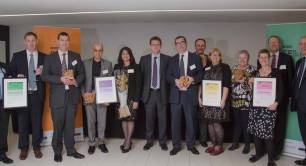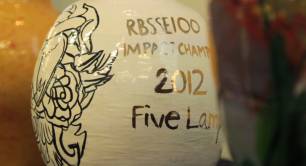SE100 analysis: micro social enterprises thrive under austerity
The UK’s social enterprise sector is packed with vibrant micro social enterprises and it's growing at a phenomenal rate, reveals the latest data snapshot from the RBS SE100 Index.
Published today, 2010-2014: A Five-Year Analysis of the UK’s Social Enterprises, examines the sector under the entire term of the Conservative-LibDem coalition government. The RBS SE100 is a live web platform which ranks and scores UK social enterprises according to their growth and social impact. Its research team takes regular snapshots of the data to analyse the performance of the sector.
The latest report shows that spite of the austerity measures which have dominated the UK’s economy over much of this parliamentary term, social enterprises have – on the whole – thrived.
The average growth in turnover of all of the members of the RBS SE100 in 2014 was 72%. Between 2010 and 2014, their average growth was 45%.
The top 100 fastest growing enterprises expanded their turnover by an average of 774% in 2014 and the five-year average growth for this group is calculated at 350%.
The SE100 researchers compared this growth performance with a number of other analyses of small business growth and found that the SE100 comfortably outstrips most of them, except the most innovative tech companies.
The social enterprises in the RBS SE100 have contributed a total of £22bn to the UK’s GDP between 2010 and 2014.
Founder of the SE100 Tim West said: ‘This is the first time that long-term data has been collected on the UK social enterprise sector – and the figures should make all who have been working to build this new way of doing business feel proud.’
‘Recent years have not been easy for any business – let alone those who dedicate their profits to a social purpose – but social ventures across the UK are continuing to spring up and grow.’
In addition to highlighting the growth of the sector, the report points out that in recent years smaller – micro – social enterprises have become more prevalent. The 2014 figures show that the median turnover of SE100 members was £134,000, around half the size of the median turnover in 2010 which was £281,000. This reflects an explosion in the number of small, newer organisations, many of which are community interest companies, according to the report.
Rather than being insignificant players in the wider social economy, the SE100 researchers echo the thoughts of Lord Young, the prime minister’s adviser on enterprise, who believes that micro enterprises (those with fewer than ten employees) are hugely important, making up 95.5% of the total number of the UK’s firms and driving economic growth.
An example given in the report is Petit Miracle Interiors, a tiny social enterprise with four staff which provides training in interior design and upcycling to vulnerable people. It also supports emerging entrepreneurs through its own Petit Miracles Hub in London. Its most recent year-on-year growth in turnover is 229%.
As the UK gears up for the general election in May, the SE100 researchers urge the next government to continue to support the social enterprise sector to help it realise its potential.
‘Successive governments have shown their commitment to building the social enterprise marketplace, while recent innovations, such as social investment tax relief, social impact bonds, the creation of Big Society Capital and new funds to support capacity building have put the UK at the forefront of the global social enterprise frontier,’ said Tim West.
‘As we consider the prospect of further austerity and a new UK government forming in just over a month’s time, the challenge now will be around encouraging policymakers and practitioners alike to stay the course and keep the momentum going.’
The RBS SE100 is run by Pioneers Post’s sister company Matter&Co
Photo: Petit Miracles photographed by Olivia Twaits of Matter&Co



